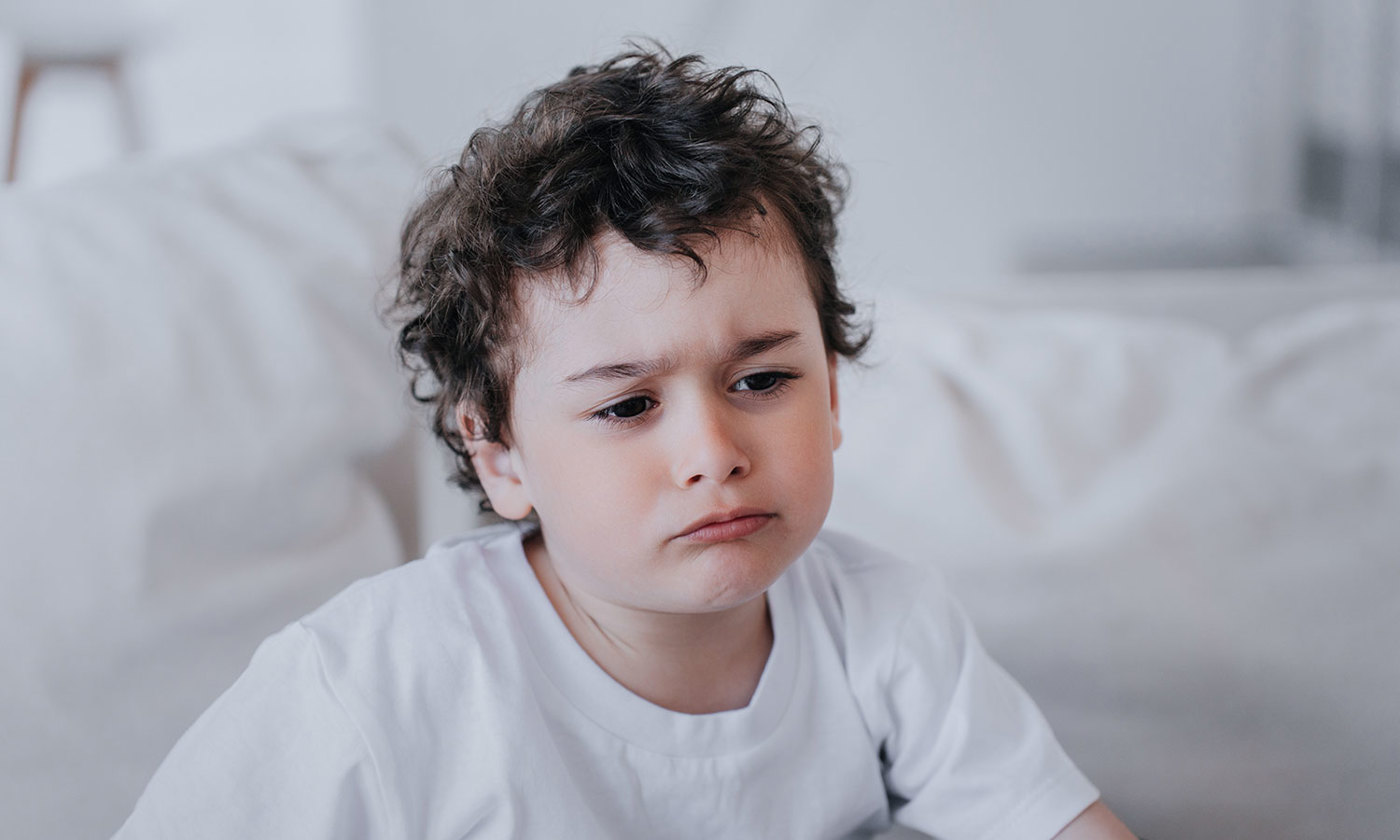Like what you see?
Sign up to receive more free parenting advice.
Thank you for subscribing to our newsletter!
Child Development

Credit: iStock.com/Iona Studio
It’s a sound guaranteed to make every parent grimace: whining. Similar to hearing fingernails on a blackboard, whining usually results in parents doing one of two things – getting cross or giving in to their child’s behaviour.
But, according to psychologist Dani Clarke, director of Superpower Kids, even though whining might drive most parents “up the wall", there are reasons for that irritating sound, which is usually a strange combination of crying and talking.
Why children whine
“Children can whine from a very early age, as early as 10 months when their verbal communication starts to emerge. However, a six-month-old baby would cry in a different way, but whining is really a form of communication. Very young children don’t have much vocabulary, especially emotional words. So it makes sense that they need to communicate by whining,” Dani said.
“But how the whining continues depends on how the parents react and deal with their child. I don’t believe that any parent likes to listen to a whining child. It causes frustration because it’s a very annoying sound.
“And whining works very well because most parents will eventually give in – and the more they give in, the more the child will continue to whine the next time they need something!”
It’s easy to dismiss whining as a child “manipulating” their parents, but Dani says it’s important to look at the reasons behind the annoying noise. Children aren’t deliberating going out of their way to annoy their parents.
“Whining is the most effective way they can communicate their needs. They might be tired or hungry, or they might want a toy or maybe they just don’t want to do something and whining is the only way they can show their feelings.
“It’s very common for parents to react with frustration or, depending on their parenting style, they might react with anger. Ideally, it would be great to react with kindness, but parents would have to try really hard! I’d say the most common reaction is for parents to be frustrated, especially when the whining goes on for a long time.”
According to Dani, another clear reason for whining is a lack of connection between the child and the parents.
Why a good connection with parents is important
A child who is in a home where there is a good connection with parents is less likely to whine.
“It’s yet another reason why having a set routine is so important, that their home is a place where they are loved and the child feels that they belong. Parents could look at how much quality time they are spending with their child, as that could also be impacting on the child’s behaviour.
“Research shows the more connection kids feel with their parents, the less they whine, so it makes a big difference if the parents proactively react to the whining with kindness. Instead of feeling cross with their whining child, they could ask themselves, ‘What does this child need?’”
Dani suggests parents refrain from giving into demands right away or reacting with anger or frustration. Instead, they can take a deep breath and think about their child’s behaviour in terms of their own needs.
“For example, parents could ask themselves, ‘When I need something really badly, do I need someone to get angry with me, or do I need a shoulder to cry on?’.
“It’s the same situation with kids. We all know that it’s very hard to react with kindness when we are frustrated, but its very important the parents are mindful of their child’s feelings. When your child is whining, take ten deep breaths and try to not show your frustration, no matter how irritated you feel.”
Research shows the more connection kids feel with their parents, the less they whine, so it makes a big difference if the parents proactively react to the whining with kindness. Instead of feeling cross with their whining child, they could ask themselves, ‘What does this child need?’Dani Clarke
Stay up to date with the latest news and articles from First Five Years
Thank you for subscribing to our newsletter!
When 26-year-old mother-of-two Shona is faced with the whining of her two-year-old, she admits it is very difficult to remain calm.
“My daughter is a big whiner! She whines if I take her away from the television, she whines if I don’t let her have my mobile phone and she whines if I’m talking to my friends. She likes to be the centre of attention at all times,” Shona said.
“If I’m really fed up, I will get cross with her and tell her she needs to stop whining. But if I’m totally honest, nine times out of ten I will usually just give in and let her have whatever she wants, just for some peace and quiet. It’s probably not the best thing to do and I don’t want to bring her up as a spoiled child who knows that making a fuss means she will be given everything she wants, but the whining makes things very challenging at times.”
The need for consistency
According to Dani, some children will react with anger if their parents shout at them to stop whining. Others will find it impossible to calm themselves down once their parent has shown frustration towards them. This will often lead to the child whining even more.
“Whining is very hard to deal with in every day parenting because it works! We know it works because it frustrates the parents and the parents give in. One way to stop the whining is to say ‘No’ and be consistent. Tell your child your decision is non-negotiable.
“If you change your mind later, you must tell them why. You could say they made a good point and you’ll think about it. But if you sometimes allow ice-cream after dinner, and sometimes don’t allow it, the child won’t understand and will just continue to whine because they know that works and they’ll get what they want.
“Then the cycle will continue. The child will whine about every demand they have, it might be wanting a toy in a shop or a second bedtime book, or more time playing. And if the parent gives in, the child will see that whining works for lots of different things. Kids are very clever!”
It’s important to remember that kids under the age of five understand much more than we realise. If parents change their mind under the pressure of the whining, it’s a good idea to give their child good reasons why.
“Maybe the thing they wanted isn’t so bad, or maybe you’re allowing ice-cream after dinner because you’re on holidays. You can say, ‘I’ll allow it this time.’ But to get what they want, tell them they need to use their normal voice and not their whining voice. Your child will learn to respect that when you say something is non-negotiable, you won’t change your mind. Otherwise, nothing is going to stop the whining.”
Daniele Clarke is the founder of Superpower Kids, a program that delivers social-emotional learning resources to thousands of children in Australia and globally. Her passion is equipping parents, educators, and mental health workers with tools to support the emotional development of children, leading them to a brighter future. Daniele is registered with the Psychology Board of Australia.






